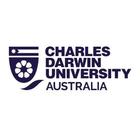Diploma of Alcohol and Other Drugs Practice
Diploma of Alcohol and Other Drugs Practice
Our Diploma is suitable for anyone with an interest in working in the area of alcohol and other drugs and introduces students to contemporary issues, research and interventions in the Australian alcohol and other drugs (AOD) field. This Diploma is specially designed for students seeking career entry into the AOD…
Categories
COURSE DESCRIPTION
Our Diploma is suitable for anyone with an interest in working in the area of alcohol and other drugs and introduces students to contemporary issues, research and interventions in the Australian alcohol and other drugs (AOD) field. This Diploma is specially designed for students seeking career entry into the AOD sector, or professionals working in the fields of mental health, education, nursing, social work, indigenous studies, health sciences, etc.
Through innovative units, this program delivers the latest evidence-based research to provide you with the skills and competencies necessary for you to navigate the complex and growing challenges faced in the alcohol and other drugs sector and to meet specific professional development needs, expand employment opportunities and continue to future undergraduate studies.
As a student you will:
Gain the skills to evaluate and implement current research evidence in the AOD field.
Develop and expand your knowledge, gaining practical skills and competencies leading to an entry point of employment or increased employment opportunities.
Develop competencies for professional practice required within anticipated environments in which AOD services are delivered.
Have the choice to study on campus or learn via flexible online study to suit your busy schedule.
REQUIREMENTS
Admission requirements are met by one of the following:
Successful completion of the Northern Territory Certificate of Education and Training (or equivalent) and the awarding of an Australian Tertiary Admissions Rank (ATAR) of at least 60.
Successful completion of a national qualification at Certificate III level or higher.
Successful completion of at least 0.5 year of full-time study (or equivalent) of a higher education degree/diploma.
Overseas secondary or tertiary qualifications considered equivalent to the above Australian qualifications.
English language requirements
To gain entry into Charles Darwin University, all Higher Education applicants must satisfy the University’s English Language Proficiency Requirements for their chosen course of study. International applicants will be required to supply evidence of this at the time of application.
CDU English for Academic Purposes 3 (ZEAP30): Successful completion of EAP003 English for Academic Purposes 3
IELTS: A minimum overall score of 6.0 with no band less than 6.0.
Cambridge Advanced English (CAE): A minimum overall score of 169, with no skill below 169.
Common European Framework Certificate of English Proficiency: A minimum overall grade of B2.
Pearson Test of English (PTE): minimum overall score of 50 with no score lower than 50.
TOEFL Internet-based Test (iBT): minimum overall score of 60 and a minimum writing score of 21.
EDUCATIONAL INSTITUTION
Charles Darwin University (CDU) is a truly unique institution, headquartered in the Northern Territory and spanning the whole country with delivery sites in cities like Brisbane, Darwin, Perth, Melbourne and Sydney and regional hubs such as Alice Springs, Katherine and Palmerston. The university’s multi-campus, virtual and online expertise, course profiles, delivery methods, research activities and operation, result from a commitment to the regions in which it operates. At CDU, international students will benefit from the university’s relatively smaller class sizes and a low student-to-teacher ratio that is in the range of one teacher to every 15-20 students. International students have 11 campuses and centres located around Australia where they could be studying, from tropical Darwin, the outback of Alice Springs or in one of Australia’s more famous cities, Sydney. CDU is ranked number four among Australian universities for undergraduate employment outcomes.




